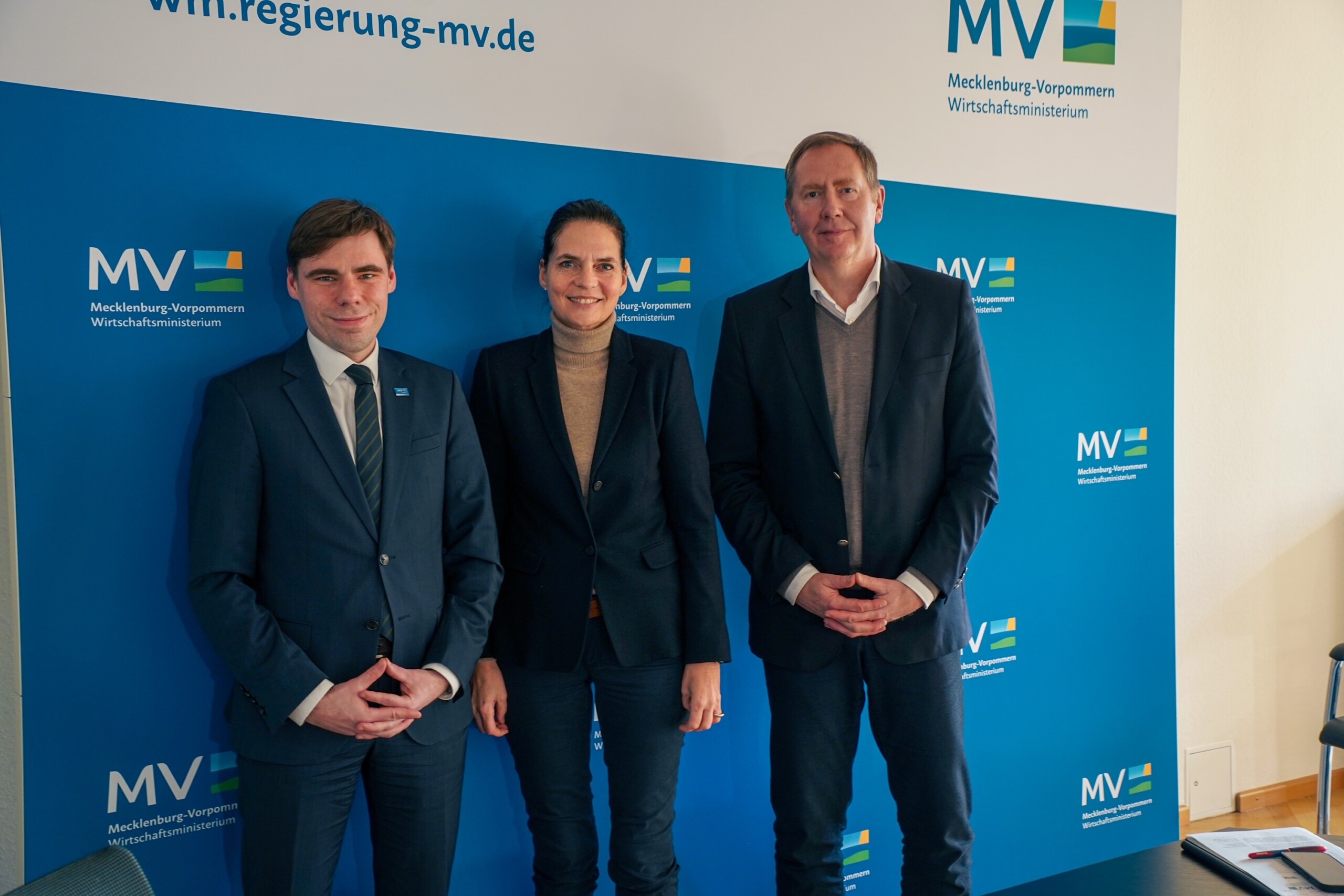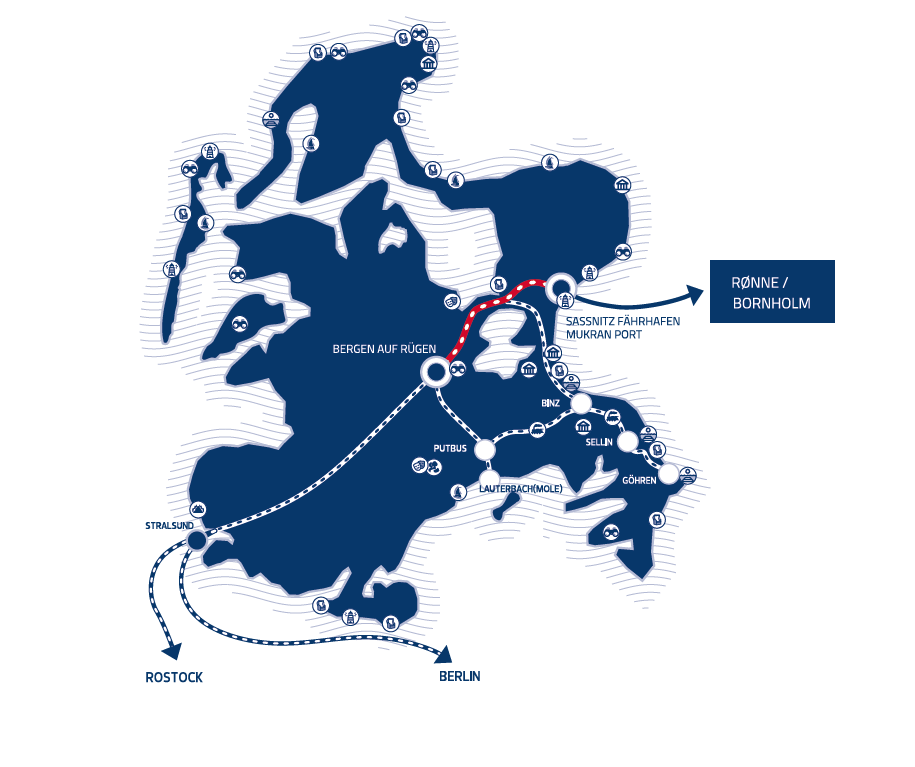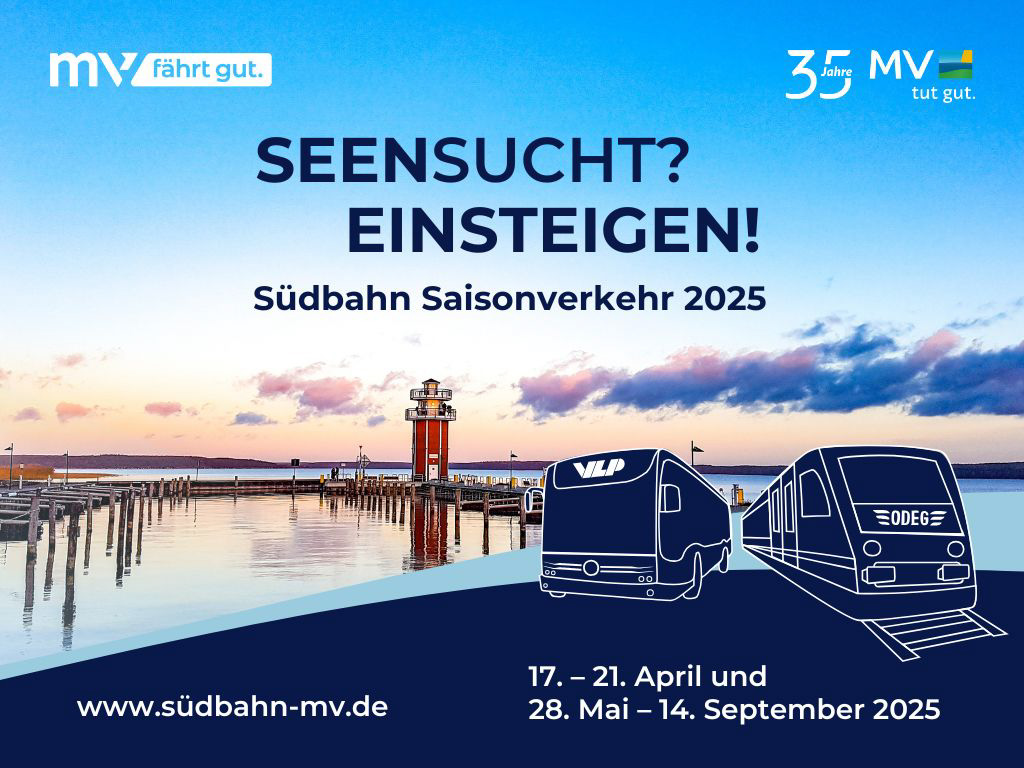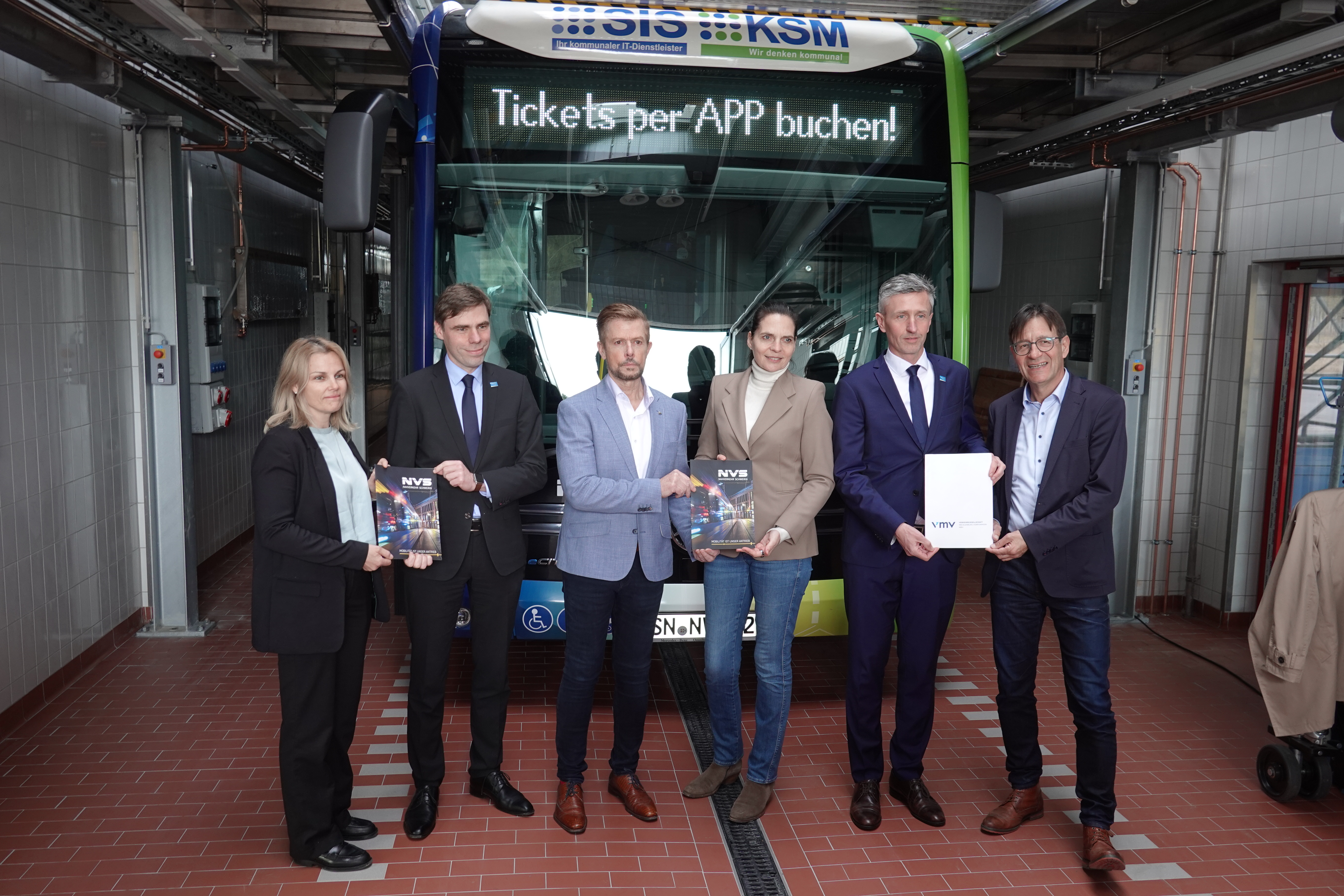Press release of the Ministry of Economy, Infrastructure, Tourism and Labour
State Secretary for Transport Ines Jesse and Parliamentary State Secretary for Western Pomerania and Eastern Mecklenburg Heiko Miraß, together with the Managing Director of VMV-Verkehrsgesellschaft Mecklenburg-Vorpommern (VMV) Daniel Bischof, presented the results of the economic feasibility study for the Darßbahn today (4 March). "The positive news first: the expert opinion has shown that the cost-benefit ratio is 2.04. This means that the benefits of the project exceed the costs and that it therefore makes economic sense and, above all, is eligible for federal funding. We have cleared this important hurdle. Now we have more homework to do," said Ines Jesse, State Secretary at the Ministry of Economic Affairs, Infrastructure, Tourism and Labour.
On behalf of the state, the VMV had put out a tender for an economic feasibility study or benefit-cost analysis (NKU) for the "Reactivation of the Darßbahn" project and awarded the contract to PTV Transport Consult GmbH.
State Secretary Heiko Miraß emphasised the particular importance of the project for the qualitative development of tourism in the eastern part of the country. "People visit our coastal regions because of their scenic beauty and unspoilt nature. Tourism that fits in with this must rely much more heavily on buses and trains in future and move away from the strong focus on private transport. The Darßbahn railway will make it much more attractive to reach us by train in future - an important step towards raising the profile of Western Pomerania as a model region for sustainable tourism," said the Parliamentary State Secretary for Western Pomerania and Eastern Mecklenburg.
Daniel Bischof, Managing Director of VMV, added: "As an important part of the mobility offensive, the Darßbahn will raise the region's connectivity for locals and tourists to a new level. I would like to thank everyone involved in the development of the economic feasibility study and in particular the district of Vorpommern-Rügen and the Usedomer Bäderbahn for providing important data."
Four construction phases over a length of 19.3 kilometres planned
The plan is to reactivate the Barth - Zingst - Prerow line in four construction phases over a length of 19.3 kilometres. Usedomer Bäderbahn GmbH will act as the infrastructure operator of the line and the transport facilities as the official project sponsor. The project involves the renovation and reconstruction of the existing infrastructure on the existing route between Barth and Bresewitz as well as the construction of the railway line from Bresewitz to Prerow with a partially new route. In order to be able to apply for federal funding, it is necessary to prove the economic benefits as part of a benefit-cost analysis (NKU) in accordance with the "standardised evaluation" procedure specified by the federal government. As a result, the benefits of a measure must exceed the costs (benefit-cost ratio > 1).
Further procedure:
Now that the benefit-cost analysis has been completed, an important hurdle has been formally overcome in order to obtain proportional funding in accordance with the German Municipal Transport Financing Act (GVFG). According to an initial rough estimate, a total volume of around 204 million euros must currently be assumed. The financing of a state share is planned from regionalisation funds. The aim is for the funding application for the GVFG financial aid to be submitted by summer 2024.
Information on the profitability analysis
The relatively high benefit was mainly due to
- tourist traffic,
- significant journey time gains resulting from the reduction in journey times through new direct connections (Prerow - Zingst - Barth - Velgast - Stralsund) with local rail passenger transport,
- Improving the connection of the region to the centres and thus the accessibility of public services and infrastructure (services of general interest) by public transport.
Other positive benefit components are
- the expected increase in passenger demand and reduction in the volume of motorised private transport,
- the expected increase in fare revenue,
- Avoided accident damage (consequential costs),
- emissions avoided: Carbon dioxide and other pollutants,
Cost accounting includes
- Investment costs for the infrastructure to be set up
- Maintenance costs for the new infrastructure,
- Operation of local rail passenger transport (RB25).






